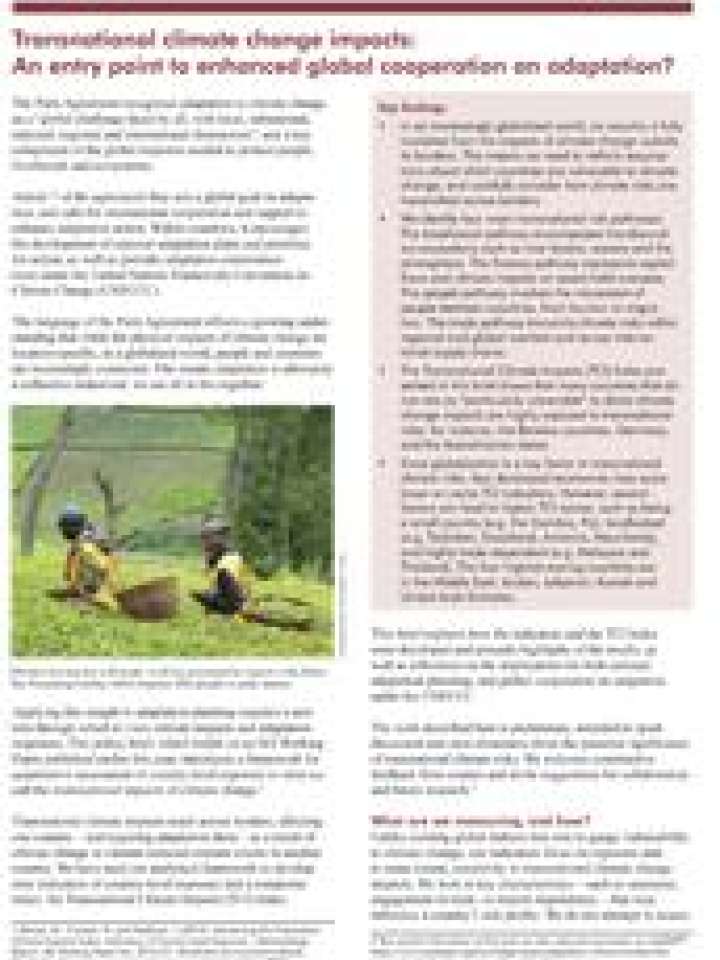Transnational climate change impacts: An entry point to enhanced global cooperation on adaptation?
The Paris Agreement recognizes adaptation to climate change as a “global challenge faced by all, with local, sub-national, national, regional and international dimensions”, and a key component of the global response needed to protect people, livelihoods and ecosystems.
The language of the Paris Agreement reflects a growing understanding that while the physical impacts of climate change are location-specific, in a globalized world, people and countries are increasingly connected. This means adaptation is ultimately a collective endeavour: we are all in this together.
Applying this insight to adaptation planning requires a new lens through which to view climate impacts and adaptation responses. This policy brief, which builds on an SEI Working Paper published earlier this year, introduces a framework for quantitative assessment of country-level exposure to what we call the transnational impacts of climate change.
Transnational climate impacts reach across borders, affecting one country – and requiring adaptation there – as a result of climate change or climate-induced extreme events in another country. We have used our analytical framework to develop nine indicators of country-level exposure and a composite index: the Transnational Climate Impacts (TCI) Index.
Explore further
